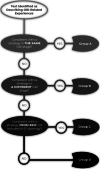Building organizational readiness: initial field testing of an expert-informed typology of implementation strategies
- PMID: 35236502
- PMCID: PMC8889398
- DOI: 10.1186/s43058-022-00257-7
Building organizational readiness: initial field testing of an expert-informed typology of implementation strategies
Abstract
Background: Organizational readiness is a known barrier to implementing evidence-based practices (EBPs) in community mental health services. A robust methodology for enhancing organizational readiness for implementation (ORI) has the potential to improve implementation outcomes of EBPs and ensure better services for people with a psychiatric disability. Prior work established a framework of implementation strategies targeting ORI enhancement by asking a group of implementation experts from various fields to categorize strategies from the "Expert Recommendations for Implementing Change" (ERIC) Project into three readiness stages, consistent with the pre-action stages of the Transtheoretical Model of behavioral change: Pre-contemplation, Contemplation, and Preparation. The current study provides initial confirmation and refinement to this expert-driven typology based on community mental health field experiences.
Methods: We conducted in-depth interviews with stakeholders involved in a recent EBP implementation project. Participants included staff (n=9) from four community mental health agencies and the implementation team who facilitated the project (n=3). Their pre-implementation experiences were compared with the experts' typology to identify consistencies and discrepancies.
Results: The participants' experiences were congruent with two thirds of the strategies identified by the experts for specific ORI stages. The refinements included 12 strategies used in additional stages beyond the experts' classification, four strategies from the ERIC list that were not included in the ORI typology, and five new strategies.
Conclusions: This study provides initial confirmation and refinements to the previously published ORI typology. The results offer guidance as to how ORI could be enhanced in the community mental health field.
Keywords: Community mental health; Employment services; Evidence-based practices; Implementation strategies; Organizational readiness for change; Pre-implementation; Psychiatric rehabilitation; Psychosocial interventions; Transtheoretical model.
© 2022. The Author(s).
Conflict of interest statement
The authors declare that they have no competing interests.
Figures
Similar articles
-
Enhancing organizational readiness for implementation: constructing a typology of readiness-development strategies using a modified Delphi process.Implement Sci. 2021 Jun 10;16(1):61. doi: 10.1186/s13012-021-01132-0. Implement Sci. 2021. PMID: 34112191 Free PMC article.
-
Ready to roll: Strategies and actions to enhance organizational readiness for implementation in community mental health.Implement Res Pract. 2021 Feb 23;2:2633489520988254. doi: 10.1177/2633489520988254. eCollection 2021 Jan-Dec. Implement Res Pract. 2021. PMID: 37090001 Free PMC article.
-
Translating Medicaid policy into practice: policy implementation strategies from three US states' experiences enhancing substance use disorder treatment.Implement Sci. 2022 Jan 6;17(1):3. doi: 10.1186/s13012-021-01182-4. Implement Sci. 2022. PMID: 34991638 Free PMC article.
-
Impact of summer programmes on the outcomes of disadvantaged or 'at risk' young people: A systematic review.Campbell Syst Rev. 2024 Jun 13;20(2):e1406. doi: 10.1002/cl2.1406. eCollection 2024 Jun. Campbell Syst Rev. 2024. PMID: 38873396 Free PMC article. Review.
-
Strategies to improve the implementation of healthy eating, physical activity and obesity prevention policies, practices or programmes within childcare services.Cochrane Database Syst Rev. 2020 Feb 10;2(2):CD011779. doi: 10.1002/14651858.CD011779.pub3. Cochrane Database Syst Rev. 2020. PMID: 32036618 Free PMC article.
Cited by
-
Tracking, naming, specifying, and comparing implementation strategies for person-centred care in a real-world setting: a case study with seven embedded units.BMC Health Serv Res. 2022 Nov 24;22(1):1409. doi: 10.1186/s12913-022-08846-x. BMC Health Serv Res. 2022. PMID: 36424611 Free PMC article.
-
Implementation mapping for tobacco cessation in a federally qualified health center.Front Public Health. 2022 Sep 2;10:908646. doi: 10.3389/fpubh.2022.908646. eCollection 2022. Front Public Health. 2022. PMID: 36117603 Free PMC article.
References
-
- Interdepartmental Serious Mental Illness Coordinating Committee. The way forward: federal action for a system that works for all people living with SMI and SED and their families and caregivers. Washington DC: SAMHSA; 2017. Available from: https://store.samhsa.gov/product/The-Way-Forward-Federal-Action-for-a-Sy...
-
- Weiner BJ, Clary AS, Klaman SL, Turner K, Alishahi-Tabriz A. Organizational readiness for change: what we know, what we think we know, and what we need to know. In: Albers B, Shlonsky A, Mildon RAB, Shlonsky A, Mildon R, editors. Implementation Science 30. Cham: Springer; 2020. p. 101–44.
Grants and funding
LinkOut - more resources
Full Text Sources



